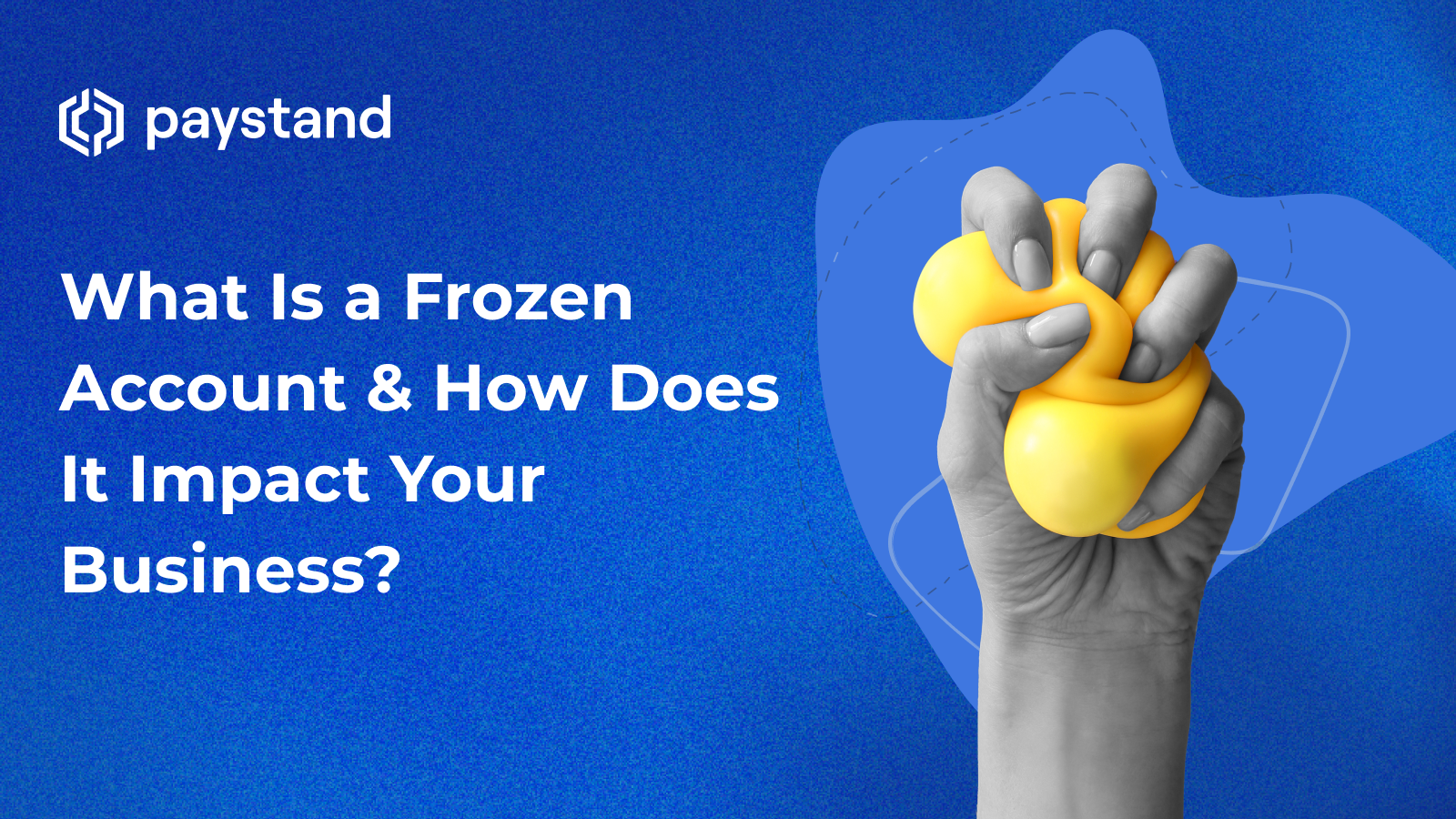What Is a Frozen Account & How Does It Impact Your Business?

Table of Contents
- What Is a Frozen Account?
- Why Is My Account Frozen?
- How Long Does a Frozen Account Last?
- What to Do If Your Bank Account Is Frozen
- How to Prevent Your Account from Being Frozen
- Financial Implications of a Frozen Account
Key Takeaways
- A frozen account restricts withdrawals and outgoing transfers but may still accept deposits.
- Accounts can be frozen due to fraud, court judgments, unpaid taxes, or suspicious activity.
- Quick resolution often depends on the account holder's compliance and response.
- Prevention includes avoiding unpaid debts, separating government benefits, and proactively managing financial obligations.
What Is a Frozen Account?
A frozen account is a bank or brokerage account that has been temporarily locked, meaning the account holder cannot withdraw funds, make transfers, or process payments. While incoming deposits may still be accepted, all outbound transactions are restricted until the freeze is lifted and your accounts receivables can be severely impacted.
This often includes:
- Cancelled open transactions
- Unprocessed checks becoming void
- Restrictions on debit or cash withdrawals
Note: If only a debit account is frozen, credit transactions typically remain unaffected.
Why Is My Account Frozen?
Accounts may be frozen either by the account holder, the financial institution, or a government or regulatory authority. Here are the most common reasons:
1. Fraud or Suspicious Activity
Banks often freeze accounts as a security measure when they detect unusual activity—like unauthorized access or sudden large transfers—to prevent fraud or identity theft.
2. Lost or Stolen Cards
You can freeze your own account or card through online banking if your card is misplaced. This prevents any potential fraudulent charges while you locate or replace it.
3. Court Judgments or Legal Orders
A court judgment can trigger a freeze if a creditor has successfully sued you for an unpaid debt. In such cases, your account may be garnished until the judgment is satisfied.
4. Unpaid Taxes or IRS Liens
If you owe unpaid taxes, the Internal Revenue Service (IRS) can legally freeze your bank account to collect what you owe. This is typically preceded by multiple notices and warnings.
5. Account Holder's Death
To prevent unauthorized withdrawals and honor estate proceedings, a bank may freeze the account of a deceased individual until the executor presents proper documentation.
6. Violation of SEC or Brokerage Regulations
For investment accounts, violating SEC guidelines or engaging in insider trading or other illegal activities may result in a brokerage account freeze.
How Long Does a Frozen Account Last?
There’s no universal freeze duration—it depends on the underlying cause and how quickly it’s resolved.
- Minor Issues (7–10 Days): These include temporary fraud holds or overdue payments. Once the issue is clarified or the debt is paid, the bank can unfreeze the account quickly.
- Serious Legal or Criminal Cases (30+ Days): Accounts frozen by court order or due to criminal activity may remain frozen until court resolution or legal clearance.
- Estate or Probate Issues: Accounts frozen due to death stay locked until official probate documentation is provided.
What to Do If Your Bank Account Is Frozen
If your bank account is frozen, follow these steps to resolve the issue:
- Contact Your Bank Immediately: Ask for the reason and what steps are required to unfreeze your bank account.
- Verify Transactions: If it was a fraud alert, verify recent transactions to prove they were legitimate.
- Settle Outstanding Debts: If frozen due to debt or a court judgment, contact the creditor or court to make payment arrangements.
- Provide Required Documentation: For legal or IRS-related freezes, work with an attorney or tax advisor to resolve the matter.
- Request a Hearing (If Applicable): You may be entitled to a court hearing to challenge or explain the freeze.
How to Prevent Your Account from Being Frozen
Avoid the stress of dealing with a frozen bank account by taking the following precautions:
1. Don’t Ignore Debt Collectors
Communicating with debt collectors shows goodwill. You can often negotiate a payment plan and avoid escalated actions like a bank levy or garnishment.
2. Claim Exempt Funds
Some funds are legally protected from freezes, including:
- Social Security
- Veterans benefits
- Federal student aid
- Child support or disability benefits
You may need to file a claim of exemption with the court to ensure these funds aren’t frozen.
3. Separate Government Deposits
Keep government assistance funds in a dedicated account. This ensures that if your primary account is frozen, these exempt funds remain accessible.
Financial Implications of a Frozen Account
A frozen account can lead to significant disruptions:
- Missed Bill Payments: If automatic withdrawals are blocked, you may incur late fees or service suspensions.
- Credit Score Impact: If a freeze leads to missed payments on loans or credit cards, your credit rating could suffer.
- Legal and Administrative Fees: Resolving a freeze, especially one involving a court judgment or IRS lien, may require legal help or incur extra fees.
A frozen account can feel alarming—but understanding the causes, knowing how to resolve it, and taking proactive steps to prevent future freezes can give you control and peace of mind. Whether you're dealing with unpaid taxes, suspicious activity, or legal action, acting swiftly is key to unfreezing your bank account and getting back on track. Interested in learning more finance best practices for your business? Subscribe to our newsletter to get more information.






%20(1)%20(1).jpg?width=100&height=100&name=IMG_3752%20(1)%20(1)%20(1).jpg)